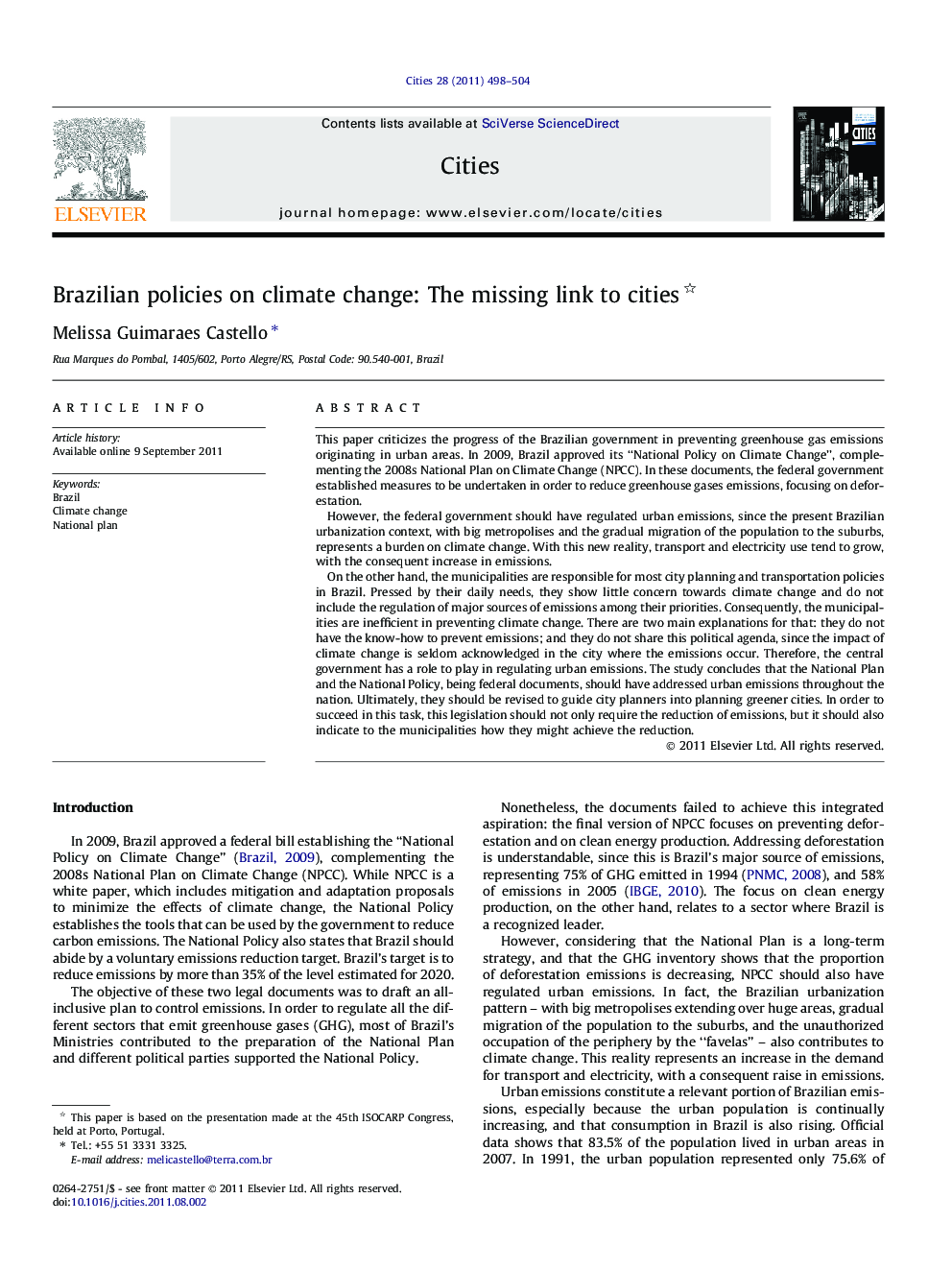| کد مقاله | کد نشریه | سال انتشار | مقاله انگلیسی | نسخه تمام متن |
|---|---|---|---|---|
| 1008698 | 938588 | 2011 | 7 صفحه PDF | دانلود رایگان |

This paper criticizes the progress of the Brazilian government in preventing greenhouse gas emissions originating in urban areas. In 2009, Brazil approved its “National Policy on Climate Change”, complementing the 2008s National Plan on Climate Change (NPCC). In these documents, the federal government established measures to be undertaken in order to reduce greenhouse gases emissions, focusing on deforestation.However, the federal government should have regulated urban emissions, since the present Brazilian urbanization context, with big metropolises and the gradual migration of the population to the suburbs, represents a burden on climate change. With this new reality, transport and electricity use tend to grow, with the consequent increase in emissions.On the other hand, the municipalities are responsible for most city planning and transportation policies in Brazil. Pressed by their daily needs, they show little concern towards climate change and do not include the regulation of major sources of emissions among their priorities. Consequently, the municipalities are inefficient in preventing climate change. There are two main explanations for that: they do not have the know-how to prevent emissions; and they do not share this political agenda, since the impact of climate change is seldom acknowledged in the city where the emissions occur. Therefore, the central government has a role to play in regulating urban emissions. The study concludes that the National Plan and the National Policy, being federal documents, should have addressed urban emissions throughout the nation. Ultimately, they should be revised to guide city planners into planning greener cities. In order to succeed in this task, this legislation should not only require the reduction of emissions, but it should also indicate to the municipalities how they might achieve the reduction.
► Brazil does not regulate urban GHG emissions. This is a missing link to the cities.
► The missing link occurs because the municipality rules on issues of local interest.
► It also occurs since there is no political interest to impose limits on urban GHG.
► Brazil established a voluntary reduction of emissions target in 2009.
► It is not likely that it will reduce urban emissions to meet this target.
Journal: Cities - Volume 28, Issue 6, December 2011, Pages 498–504